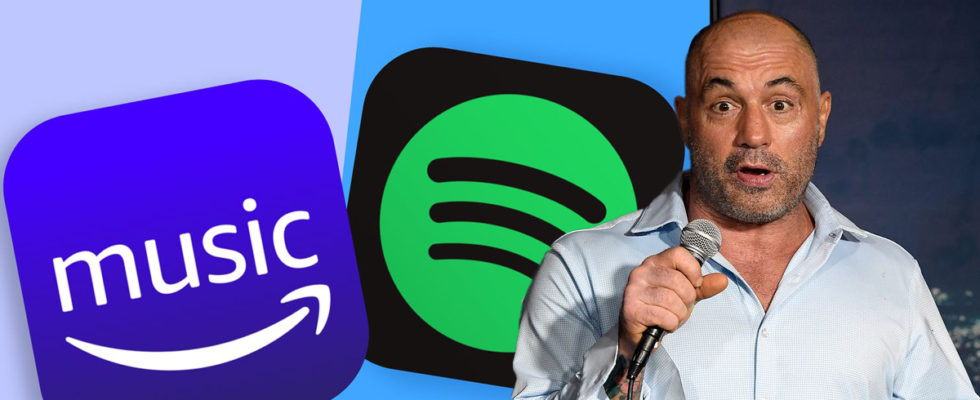Saagar Enjeti is one of the most interesting voices when it comes to politics. He’s also a good friend of comedian and podcaster Joe Rogan.
Rogan has recently been a source of a big headache for spotify. The leading platform for audio streaming captured a whole new segment of the audience thanks to Rogan. What they also didn’t anticipate is the magnitude of the public backlash. Just yesterday we reported about rockstar legend Neil Young pulling his catalogue from spotify thanks to the platform choosing to keep Rogan’s podcast on air.
He’s not the only one either – he was joined by Joni Mitchell and Springsteen guitarist Nils Lofgren. But what many might not be aware of is that Neil Young doesn’t actually own his music – he had sold the rights to his catalogue several years ago.
In the segment from his show Breaking Points, Enjeti points out some key facts. The entire clip is worth watching but here are some key notes we transcribed for you:
How much of this is actually Neil Young, how much of this is big money interests behind the scenes?
” But something I immediately suspicious of when it came to Neil Young was this, how much of this is actually Neil Young, how much of this is big money interests behind the scenes? The thing is, I’ve seen a lot of high profile cancellation efforts in my time, and in almost every single case, there’s a lot more going on behind the scenes, the people speaking out, maybe doing so organically. But it also happens to just coincide with the financial or oligarchic interests of some very, very rich people. “
Who is demanding this: is it Neil Young, or is it the people own his music?
“There is more than meets the eye. So let’s start with Neil Young where this entire thing began. The original impetus for Neil Young’s demand was a letter that he posted on social media saying that Spotify can either have Neil Young, or they can have Joe Rogan. But as I noted in our original segment, that letter was posted and then almost immediately deleted, which is really odd. It raises questions Who is demanding this, is it Neil Young, or is it the people own his music? “
Enjeti explains:
“Young actually sold his catalogue in January of 2021, to a company called Hypnosis. Now hypnosis is a $1 billion company, which recently announced ownership agreement with Blackstone, while Blackstone I know a lot about that company. You may recall their efforts that I’ve put here on the show to turn America into a nation of renter’s and take over single family housing as I covered on many monologues, but they have interests everywhere. See my interest here is perked. Blackstone, BlackRock and these big private equity giants are ruthless in their pursuit of profit. And they’re savvy political players who know how to play the game. They have all sorts of ties to the pharmaceutical industry, including as I just showed you, announcing the CEO of Pfizer joining them as a senior advisor. “
And finally Enjeti points out another glaring point about Neil Young’s catalogue we haven’t seen elsewhere:
“But do you really think it’s a coincidence, the days after Neil Young’s music was pulled off Spotify, that he debuts a four month free trial for any person who wants to sign up for Amazon music, Amazon Music who has struggled to gain market share, and of course has long standing connections with all of the big money people in the game that I just talked about. Young claims he’s not personally getting any money from the deal. Okay, it’s Blackstone, his catalogue? What about the other company? Those are great questions.”
You can watch the full clip below. It’s certainly very interesting to see the holes poked in the Neil Young story that’s being pushed by the mainstream media.
Enjeti also makes another interesting point. What many of us don’t realize is that the “new music” isn’t as popular as we might think:
“… old songs now represent 70% of the entire US market, and the new music market actually is shrinking. In fact, in 2020, the 200 most popular tracks on streaming now account for less than 5% of all streams. In other words, most people are just listening to the same stuff.”
Enjeti concludes:
“The point of all of this is to open your eyes to see possibilities that you may not have imagined. At first, it was simple. Just Neil Young taking the stand right? Well, maybe but now a lot of people with big money and a big agenda who just so happened would profit if Rogen went down well like Amazon or Pfizer or Blackstone or others who consider him a thorn in their side. The problem now is that even if this was astroturfed In the beginning, it is on for real. “
